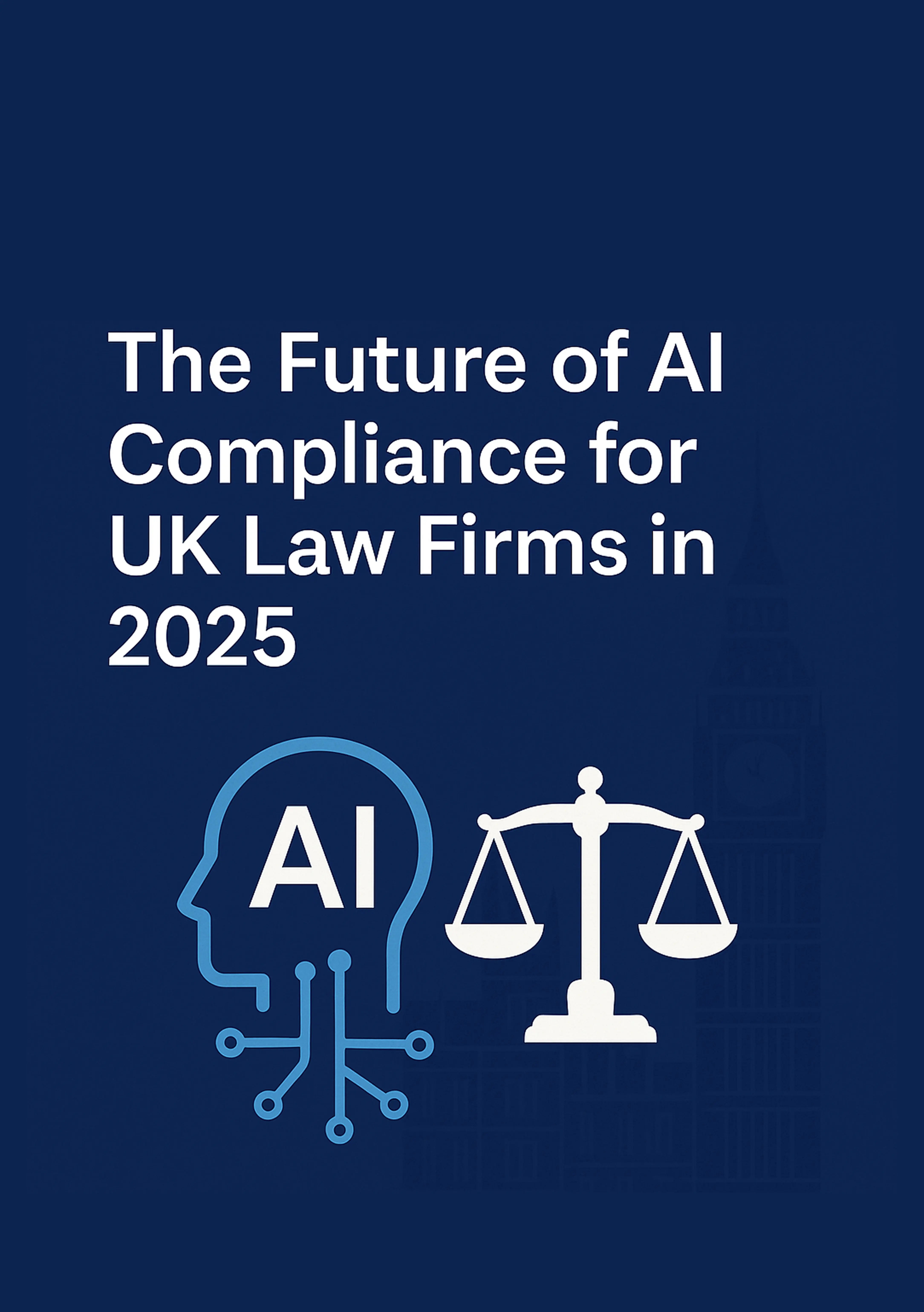
The Future of AI Compliance for UK Law Firms in 2025
Artificial intelligence is no longer optional for legal practice, it has become an operational reality. As firms across London, Manchester, and beyond adopt AI for drafting, risk analysis, and document review, the focus is shifting from capability to accountability. Success in 2025 will depend on auditability, provenance, and control.
1. The Regulatory Landscape: SRA, GDPR, and AI Responsibility
UK regulators are aligning around a simple principle: lawyers remain accountable for how technology is used.
Under Rule 4.2 of the SRA Code of Conduct, solicitors are responsible for all client work, even when assisted by AI. The UK GDPR, particularly Article 22, restricts fully automated decisions with legal or similarly significant effects. And the ICO's AI guidance reinforces the same expectations — fairness, transparency, and human oversight — with revisions now underway following the Data (Use and Access) Act, which took effect on 19 June 2025. (ICO AI Guidance)
Firms must be able to answer: 1. Where was the data sourced? 2. How was the AI output generated? 3. Who verified it before client delivery?
Recent warnings in the UK press have underscored the issue. Courts have criticised submissions that relied on fabricated AI citations, prompting renewed emphasis on supervision. (AP News)
For firms advising EU clients, cross-border compliance is also relevant. The EU's AI Act Code of Practice, expected in late 2025, will demand explainability and traceability across AI-assisted legal processes. (Reuters)
2. The Real Risks of Unverified AI in Law
Even capable AI systems can compromise legal compliance when left ungoverned:
- Unverifiable sources: general-purpose models may hallucinate case law or statutes.
- Data transfer risk: uploading client materials to external servers may breach confidentiality or transfer rules.
- Opaque reasoning: AI that cannot explain its conclusions fails both SRA and GDPR standards.
Corporate clients are alert to these risks. In recent Law Society Gazette surveys, over half of UK in-house counsel indicated they now expect firms to demonstrate AI governance when pitching. (Law Society Gazette)
3. How UK Firms Can Build AI Compliance into Their Workflow
Compliance must live inside the workflow, not as an afterthought. That is why firms are moving toward platforms like Qanooni, which integrate governance directly into Microsoft 365.
| Traditional Assurance | System-Logged Assurance (Qanooni) |
|---|---|
| Manual reviews and notes | Clause-level citations to verified law |
| Fragmented research | Unified search across 1,000+ authority databases |
| Human checks only | Human + AI with full audit log |
| Post-hoc documentation | Real-time audit trail in Microsoft 365 |
Qanooni's three founding principles:
- Meet lawyers where they work. Runs inside Word & Outlook; no third-party uploads.
- Keep lawyer IP central. Your precedents, playbooks, and style remain proprietary; no training on client data.
- Ensure data security. All processing happens in-tenant under your firm's controls.
This architecture turns AI from an opaque black box into a transparent, auditable assistant with every suggestion linked to a real source of law.
4. How to Prepare Your Firm for AI Compliance in 2025
Step 1 - Map current AI use
List every workflow where AI appears: drafting, due-diligence, discovery, client portals. Identify those that handle client or personal data.
Step 2 - Define governance procedures
Assign reviewers, set verification thresholds, and document feedback loops. Align processes with SRA supervision obligations and ICO fairness principles.
Step 3 - Create audit trails
Implement systems that record when AI was used, by whom, and under what rules. Qanooni's reasoning logs and citations make this automatic.
These steps meet both legal and commercial expectations for accountability.
5. Top 3 Benefits of AI Compliance for UK Firms
- Client assurance: Firms can prove how AI tools are supervised and verified.
- Regulatory resilience: Audit logs reduce exposure to ICO or SRA investigations.
- Operational integrity: Faster reviews with documented reasoning keep workflows efficient and defensible.
Compliance is no longer a cost; it is a hallmark of quality legal service.
6. Practical Examples Across UK Practice Areas
- Commercial & Corporate: automated NDAs reviewed by AI now require documented oversight to satisfy client audit rights.
- Employment: AI screening tools used for HR advice fall under GDPR Article 22 scrutiny.
- Real Estate: cross-border portfolio contracts often rely on dual EU–UK compliance regimes.
Firms in London, Manchester, and Birmingham are already building internal AI-use policies to manage these scenarios.
Frequently Asked Questions
Is AI compliance mandatory for UK law firms in 2025?
Yes. Any use of AI in client work must comply with SRA accountability and UK GDPR standards.
Can AI outputs be audited under current regulations?
Yes. Qanooni creates a traceable link from each clause suggestion to its legal source, producing an auditable trail.
Does Qanooni store or train on client data?
No. All activity stays within Microsoft 365 under the firm's control.
Does this reduce hallucinations?
Yes. By grounding outputs in over 1,000 verified legal databases, Qanooni eliminates untraceable citations.
Closing Thought
AI is transforming legal practice, but trust remains the cornerstone of the profession. The firms that win in 2025 will not be those that adopt AI the fastest, but those that govern it best by ensuring every automated insight is transparent, auditable, and consistent with professional duties.
👉 Book a demonstration of Qanooni to see AI compliance in action — secure, explainable, and designed for UK law firms.